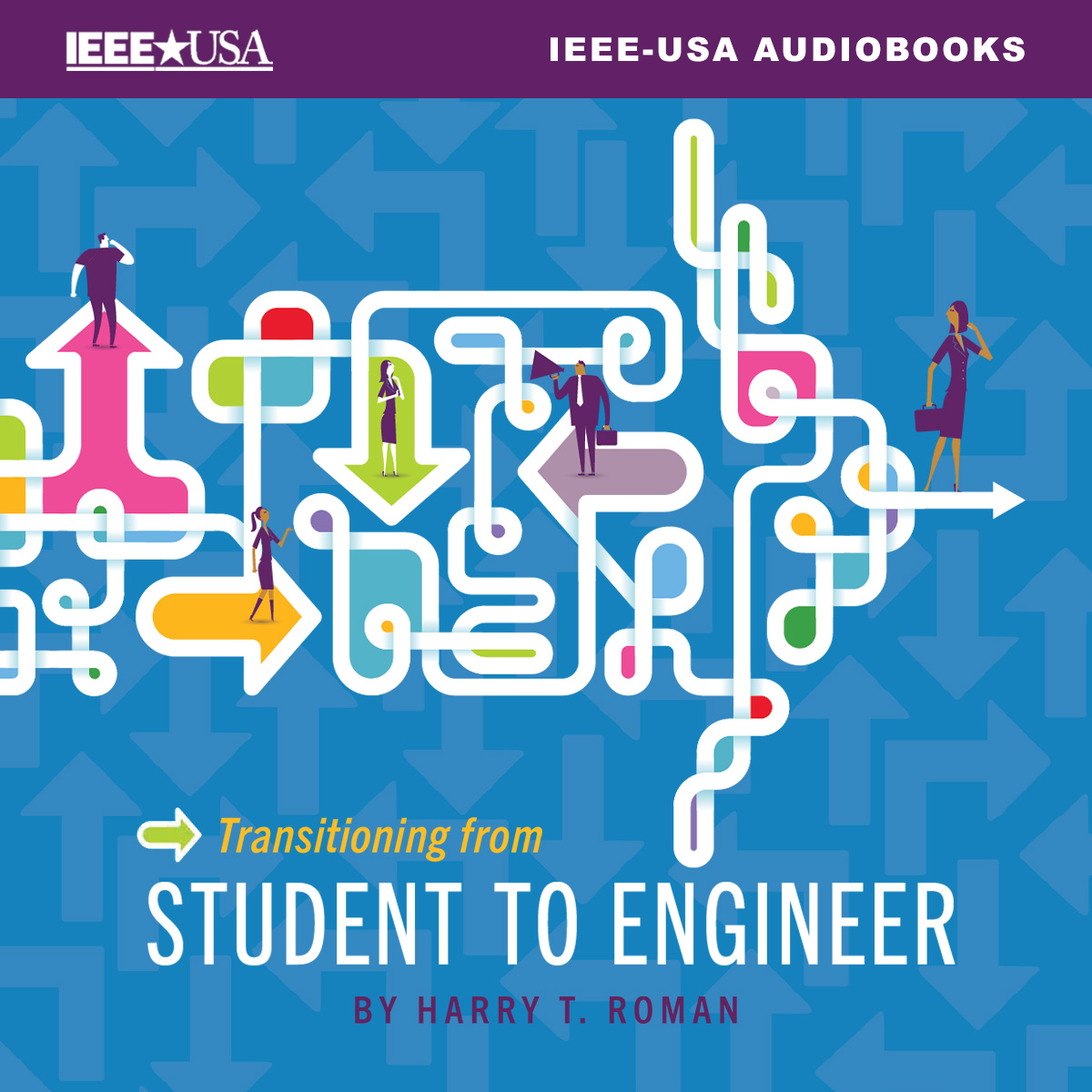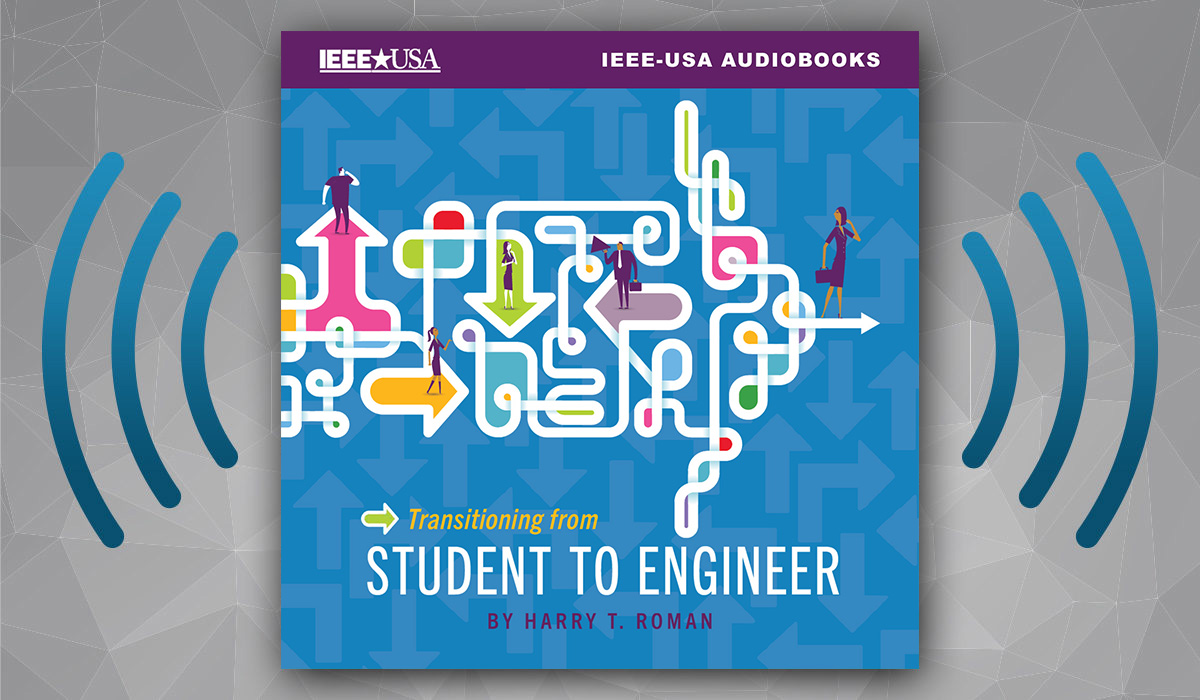
Audiobook: Transitioning from Student to Engineer
IEEE-USA has released a new audiobook from Harry T. Roman, Transitioning from Student to Engineer. It is a helpful listen for the recent engineering graduate, or a current engineering student. Roman points out that the work world is different from book work — and that the keys to success are different as well.He warns the recent graduate, “The globally competitive world waiting for you can be unforgiving; it’s best to prepare for the radical changes coming your way.” Later, the author points out: “It’s no longer just about writing that killer resumé and crushing your interview. Those tasks just allow you to ‘board the train.’” Roman notes, “The particular car you choose to sit in on your career train is an entirely different affair: a much more intense experience.”
Roman urges the recent graduate to invest in developing soft skills (like oral and written communications). He warns that many engineers ignore these skills, “often at their naive peril.” The author adds, “In more than 40 years of engineering, I have never witnessed an incompetent engineer being fired; but … I saw that poor written and oral communication skills caused many engineering careers to go awry.”
Believing a new engineer should actively seek out mentors, Roman comments, “The world of work is all about process, not subject matter content; and people who have been down the process path before (mentors) are absolutely essential to your career.”
Roman offers many helpful tips for the new engineer, including joining a professional organization (like IEEE); working on obtaining a P.E. license; and getting a master’s degree as soon as possible, after starting work. He suggests a newly employed engineer complete these tasks “while you are young and still academically fresh.” He also notes that many companies will pay the bulk of the costs for continuing education.
Above all, he advises new engineers, “don’t wait for your company to direct your career path. It’s your future, so take charge: work it often, and actively. Make the decisions you need to put you on the path you want.” He urges engineers, old and new, to keep notes and files about their career and track it often.
Roman also gives a myriad of tips for those who have not yet graduated, asserting that it is even more powerful to start the transition to the working world of engineering while still a student.
Among his suggestions are:
- Attending free engineering meetings, speakers, seminars and engineering activities on campus
- Reaching out to alumni, whom Roman describes as “little pockets of gold for students”
- Balancing academic achievement with work experiences — helping a professor with their research; interning in the field; and seeking out summer jobs with engineering firms
- Becoming a student member of a professional organization on campus, such as IEEE (he notes that Student IEEE members can attend regular IEEE Section meetings — and that they are a great place to network, and meet potential mentors or employers)
- Attending engineering conferences (they often have greatly reduced student rates)
- Reading about engineering in your free time
The author recommends asking professors what magazines they subscribe to, or having them suggest books that have influenced their careers. He also encourages students to read what their professors have written and published.
Transitioning From Student to Engineer is a must-listen for current engineering students, or newly-employed engineers. It offers helpful advice and food for thought as one starts down an engineering career path. It is available to all IEEE members free at the IEEE-USA Shop.
Harry T. Roman has spent more than four decades as an engineer and educator. He holds 12 U.S. patents and has received numerous engineering, invention and teaching awards. Throughout his engineering career, Roman worked with schools, bringing the excitement of real-world problem solving into the classroom. IEEE has honored Roman with a Meritorious Achievement award (for developing continuing education products for IEEE members) and with an Outstanding Engineer award. Roman also received IEEE’s Region 1 Excellence in Teaching award. Roman is an advisor/author to the Edison Innovation Foundation and docent/special lecturer at the Thomas Edison National Historical Park in West Orange, NJ.
